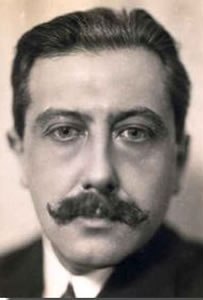A Quote by Aleister Crowley
I'm a poet, and I like my lies the way my mother used to make them.
Related Quotes
Wherein lies a poet's claim to originality? That he invents his incidents? No. That he was present when his episodes had their birth? No. That he was first to repeat them? No. None of these things has any value. He confers on them their only originality that has any value, and that is his way of telling them.
One of the appeals of William Carlos Williams to me is that he was many different kinds of poet. He tried out many different forms in his own way of, more or less, formlessness. He was also a poet who could be - he was a love poet, he was a poet of the natural order and he was also a political poet.
What we are entering is a power age, and the importance of the power age lies in its ability, rightly used with the wage motive behind it, to increase and cheapen production so that all of us may have more of this world's goods. The way to liberty, the way to equality of opportunity, the way from empty phrases to actualities, lies through power
People are flawed. I like peaking into their flaws. The way to humanize them is not to play them in any general way, but to make them very specific. If you make them specific, they have hopes and dreams and loves and vulnerabilities and quirks and you get to know them and you get to appreciate them.
Wherein lies a poet's claim to originality? That he invents his incidents? No. That he was present when his episodes had their birth? No. That he was first to repeat them? No. None of these things has any value. He confers on them their only originality that has any value, and that is his way of telling them." Mark Twain "...every literature, in its main lines, reflects the chief characteristics of the people for whom, and about whom, it is written.
One of the surest tests of the superiority or inferiority of a poet is the way in which a poet borrows. Immature poets imitate mature poets steal bad poets deface what they take and good poets make it into something better or at least something different. The good poet welds his theft into a whole of feeling which is unique utterly different than that from which it is torn the bad poet throws it into something which has no cohesion. A good poet will usually borrow from authors remote in time or alien in language or diverse in interest.







































